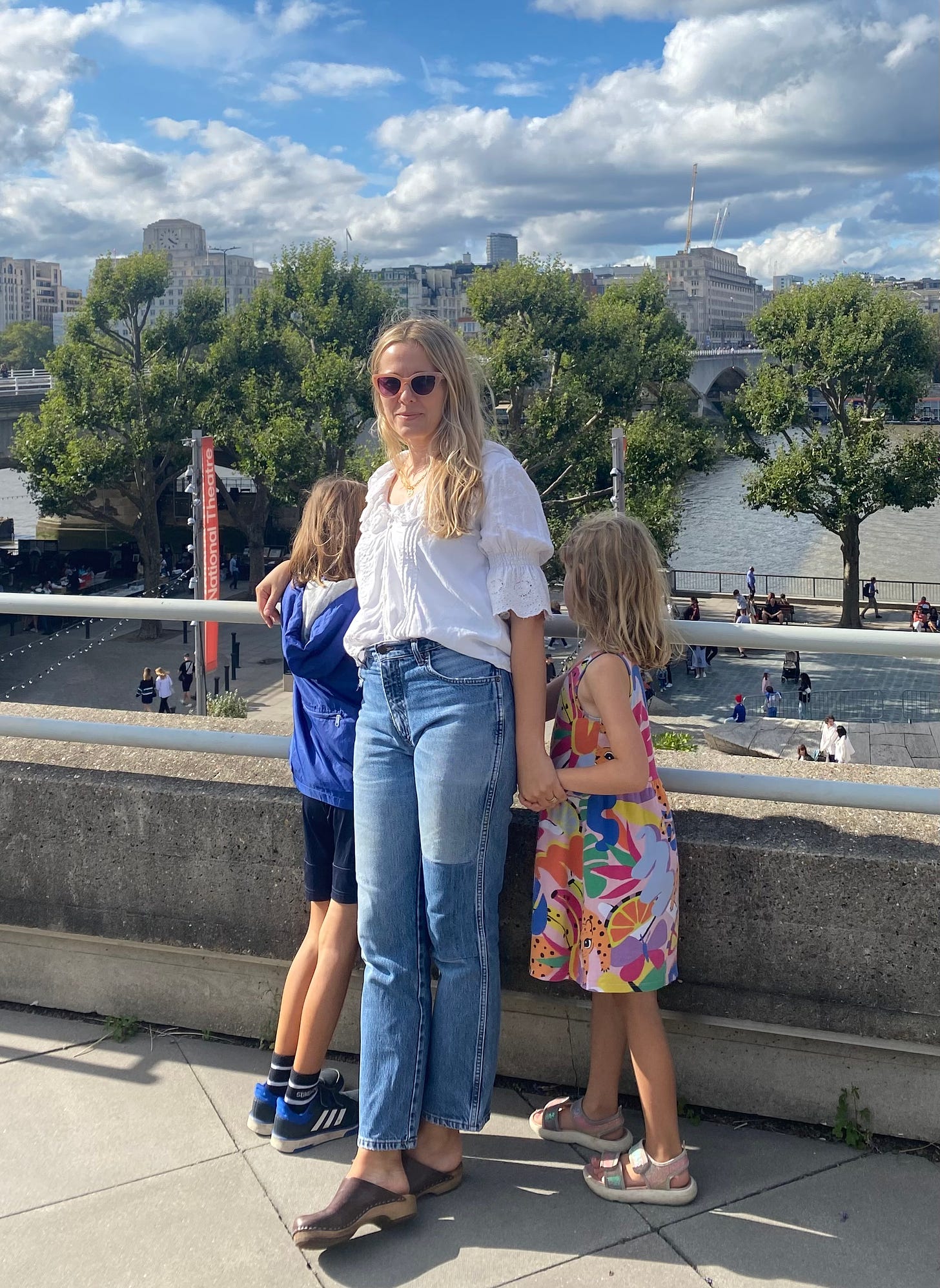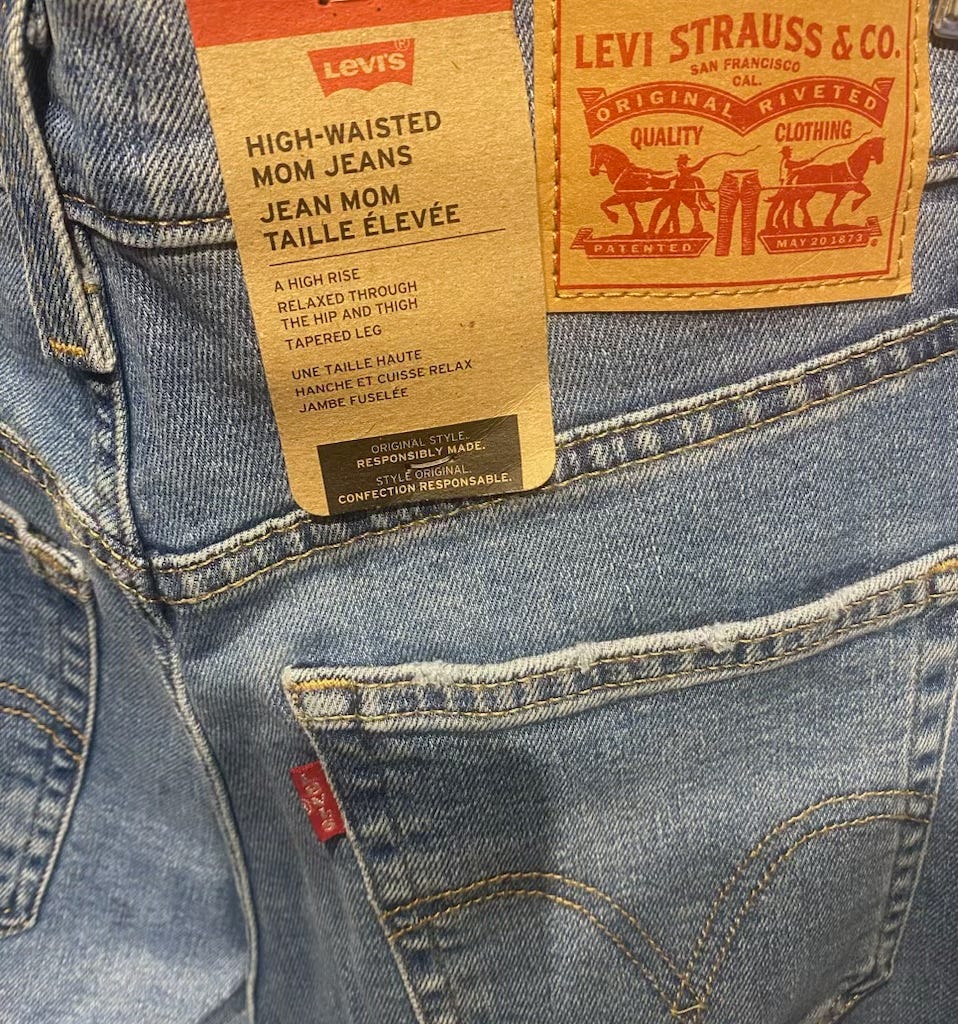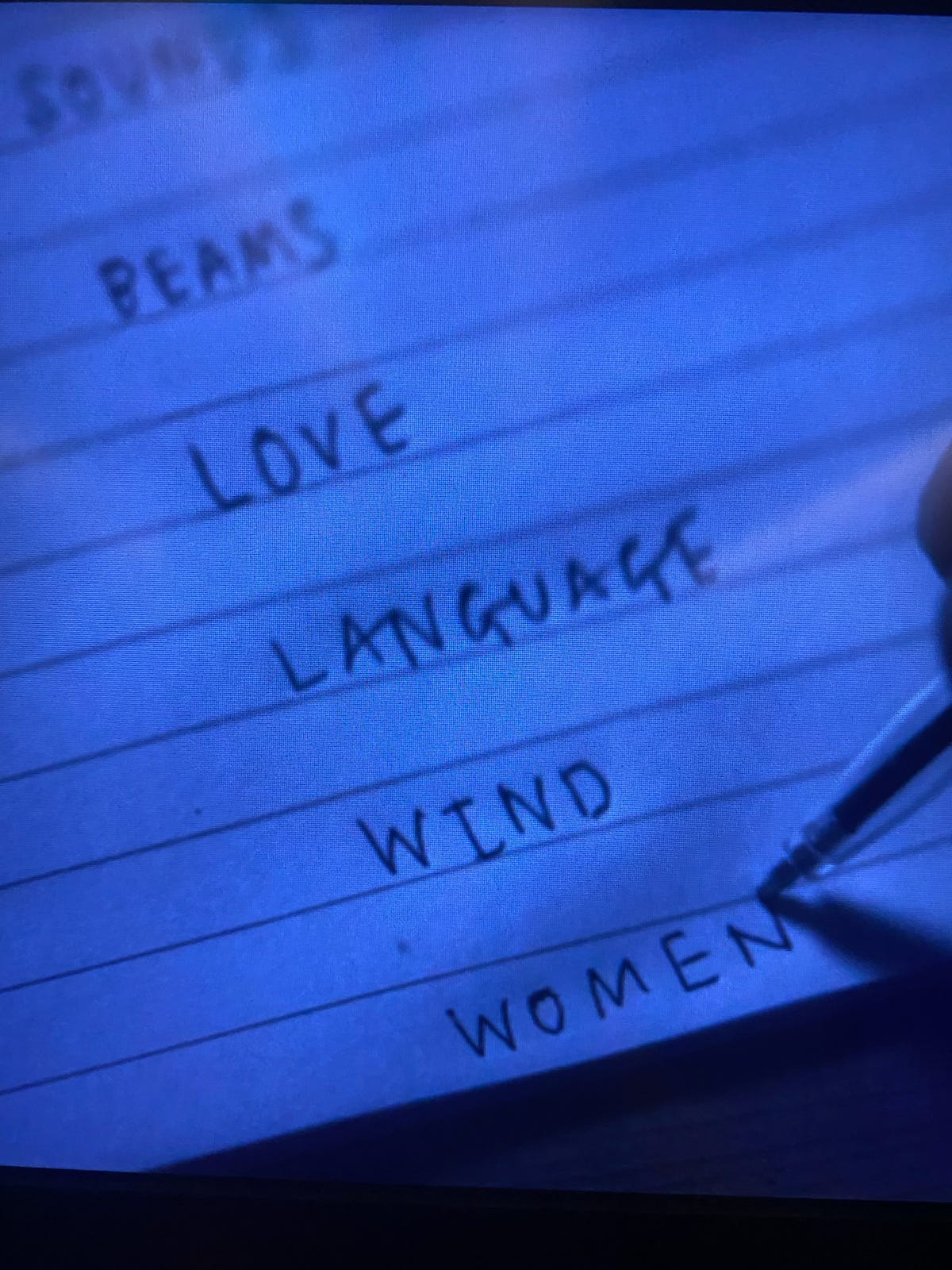(Mom) Jeans & (Women's) Language
Or rather, (dad!) jeans, Sarah Polley's "Women Talking" & Zadie Smith on caregiving
I am bleary-eyed and exhausted after a red-eye flight from Western Canada to London yesterday and a sleepless night with jet-lagged children. But I wanted to share three fun and beautiful things ahead of the weekend.
1. Moms’ Jeans & Mom Jeans
My first true love was the glossy magazine. I was obsessed with all things Vogue, Mirabella (iykyk) and Fashion File (CBC for the win!) as a kid. For most of my twenties and early thirties, I worked as a lifestyle editor and fashion journalist, so I was thrilled to be over on
earlier this week talking about my love for vintage men’s Wrangler jeans and what the brand means to me as a mom. Jane Herman is an accomplished journalist, writer, editor, designer and denim expert so if you love all things denim, definitely subscribe to her Substack. Read the full newsletter here and also, check out her brilliant two-part series on vintage denim. Me in this week’s newsletter:Jean of the Week: Malwina Gudowska
A Londoner and linguist pays tribute to her love of vintage Wranglers…
Dark blue Calvin Klein straight-leg jeans and a Guess mini skirt are my earliest denim memories, circa 1990 — singular finds in the small Canadian prairie city where I grew up. I wish I could say I wore both regularly, but the skirt was too short, and an unfortunate hem job got between me and my Calvins. A few years later, on the cusp of my teenage years, it was all about deconstructing Levi’s, adding strips of plaid flannel to the sides: the baggier, the better. For most of my twenties, I continued to be a Levi’s devotee – I even wrote a paper on Levi’s for a university marketing class – with a few intermittent high-waisted big-brand exceptions.

But then, I bought my first pair of vintage men’s Wranglers in a London charity shop, not long after my second child was born, after a challenging pregnancy and my first c-section. They were a perfectly worn-in medium blue denim, with a roomy high-waist, and zip fly, a welcome change from the 501 button-fly that was now irritating my scar. Many of my Levi’s never fit the same way after my second baby, but most vintage men’s Wranglers, especially Texas or Ohio styles, enveloped my post-baby body in a protective (denim) veil that made me feel confident to bear my maternal marks. It was never about concealing my c-section shelf (I am proud of it!) but moving past the idea of trying to fit in to something I was before the profound changes my body went through and continues to as a woman in her forties.
You can still find vintage Wranglers for super cheap if you know where to look, and sizing, as I have learned from acquiring nearly a dozen more pairs, even for vintage styles, is amazingly consistent compared to many other brands.
I recently learned Wranglers have a “softer twill” than other denim brands. Perhaps it was a poetic chance encounter I came upon my first pair at a time when I was trying to be softer to my transformed body, and my changed self.
Malwina Gudowska is a writer, editor, and linguist. Her Substack, Motherlingual, explores the intersection of language and motherhood. She is currently working on a book on multilingual mothering for Footnote Press. More of her work and book updates can be found here.
Did I buy two more pairs of vintage Wranglers after this was published? Why yes, yes I did!
To add to the jeans discussion by throwing in some language stuff, I have always loved how jeans is a loanword from English in so many other languages. In Polish, jeans are dżinsy pronounced jean-syh and in many other languages, they are simply, jeans. Spotted in Canada a few days ago at a Levi’s store, the bilingual English-French version of the Mom Jeans! (In French, a pair of jeans is the masculine, un jean so it is jean mom although, I prefer jean maman!) BTW, are all mom jeans not high-waisted?!
I wrote more about mom jeans, the desexualized mom & slang a few years ago on Instagram:
2. Women Talking
I stayed true to my crying-on-planes habit on our way back to London this week from Canada and watched the beautiful, painful and moving Women Talking directed and adapted by Sarah Polley from the novel by Miriam Toews. I’ve been meaning to see it since it came out but never had the chance until now. So much to say about this movie and its motherhood themes and breathtaking cinematography: the hands, the braids, the children in the fields. So much beauty amid so much pain, violence and destruction. As many reviews have already noted, this movie is about language and power, and the power of language. From a review in The New Yorker:
The overarching drama is the women’s coming to consciousness by way of language. The women’s long-suppressed wisdom, their long-stifled self-consciousness, their hitherto-unrecognized eloquence, their self-creation, both inwardly and socially, along with their creation of language for their thoughts, feelings, and experiences—it’s a grand and original drama that’s situated in speech.
There are a few moments that stood out I can’t stop thinking about. (If you’ve seen the movie, I’d love to hear your thoughts in the comments.) In the beginning of the movie, one of the characters says how the women had no language to speak about their bodies, and therefore, didn’t know how and could not speak about the rapes and assaults that occurred. And as a result, there was silence for so long.
And then toward the end of the movie, one of the characters makes a “good list”, a list of what the women will want in their new place, away from the colony, a list of good things, of plans and memories. I wiped the tears from my eyes for a second and took a screenshot of the airplane TV screen so you could see what was on that list.
3. Zadie Smith on Changes the Podcast with Annie Macmanus
I just finished listening to Zadie Smith discuss her new novel, The Fraud on Annie Mac’s podcast, Changes. This is the second time Smith has been a guest and I always love what she has to say about life, love, motherhood and writing.
In this episode, Smith talk about what freedom really means and how taking care of children and family is its own type of freedom and how there is something so noble in caregiving. As someone who struggles (who doesn’t?) with getting the balance right with work, caregiving, time passing and children growing too quickly, I loved hearing her thoughts, especially as a mother of now teenagers.
Like I really notice it with- with the children thing is that at least in my own case, you spend so long battling to try and retain your own space and getting babies and then sometimes when you look at what you've battled for, it isn't very much. And the these children are about to grow and disappear so quickly that you're going to get what you want sooner than you can imagine. So all of these things are so out of sync with the discourse, our capitalist discourse which is about you do you, get what you want, and so when it comes into conflict with this other thing, I guess we have in our heads this thing like, have I become some kind of, you know, a Victorian or some old fashioned person who is domesticated and a traditional woman and then we fight against that as if there's no liberating version of being connected to other people. And that is the triumph of capitalism. It convinces you that it's just you and the shops, it's just you and the phone, and that's all that there is. Whereas there is an older vision of like solidarity between people, within families, between children, between men and men, women and women, men and women. Like a community that is freeing, it's not a trap. It's like the only thing that brings joy.
As always, thank you for reading.






